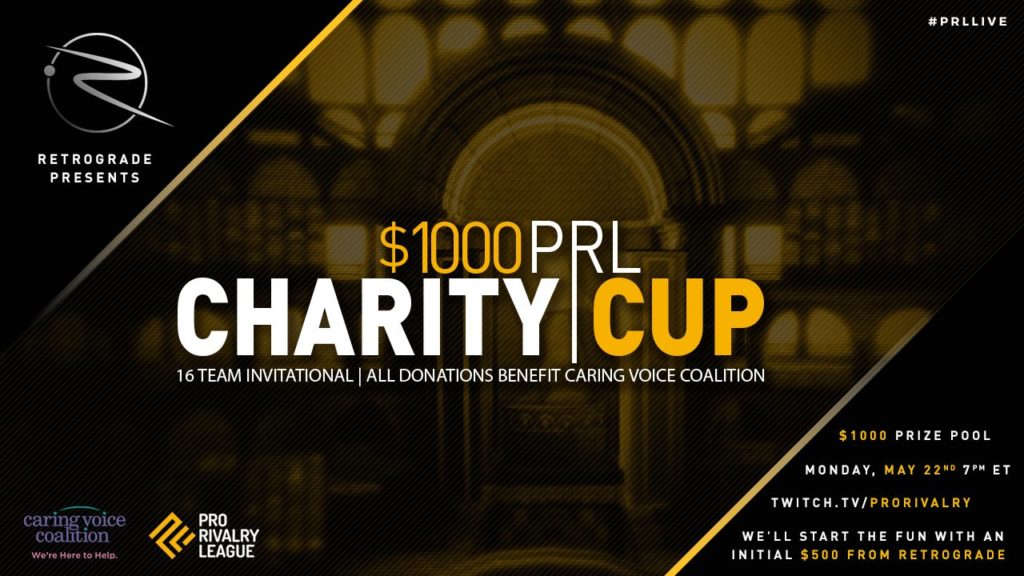For an esports title to succeed, a solid year round calendar of competitive events is crucial. It’s something that Rocket League has struggled with, as outside the RLCS there haven’t been a great deal of opportunities for teams to properly compete and challenge themselves, and in turn improve.

This is where the Pro Rivalry League (PRL) comes in. It organises weekly tournaments for ‘amateur and professionals alike’ for Rocket League and Battlerite, and is now looking to put on more LANs. We spoke to PRL Media and Outreach Co-ordinator Jeff ‘Gheer’ Dols about Rocket League, the work PRL are doing to support its grassroots and its plans going forward.
Esports Insider: Would you classify Rocket League as the fastest growing esports title around right now?
Jeff: In terms of a growing player base, Rocket league has to be counted among the fastest growing games, period. In regard to Rocket League as an esports title, growth has been slower. Other games with a similar player base (Overwatch is the most obvious) are considered higher tier titles in general. This is due in large part to the fact that a developer like Blizzard is instantly recognised and is backed by millions of dollars from the start.
“Currently, the highest aspiration for a Rocket League player is to play in the RLCS. What Rocket League needs is a greater focus on smaller organisations to act as ‘Minor Leagues'”
However, recently Rocket League has begun to expand. It began with the RLCS (now in its third season) and very recently Dreamhack announced two tournaments with $50,000 prize pools. Psyonix has finally demonstrated that they are willing and able to invest in large, third party tournaments, and this is very encouraging for the Rocket League scene at the highest levels of play.
Esports Insider: What would you say is holding it back from making that ‘next leap’, or rather what are the main challenges facing the title’s esports scene currently?
Jeff: Currently, the highest aspiration for a Rocket League player is to play in the RLCS. The RLCS is run and managed by Twitch and community mangers, and the company works closely with Psyonix in the decision making processes. This is a top-down approach to building up the scene and sets the bar for any up and coming players extremely high if they are to have any hope of being noticed.
“Psyonix has finally demonstrated that they are willing and able to invest in large, third party tournaments, and this is very encouraging for the Rocket League scene at the highest levels of play”
What Rocket League needs is a greater focus on smaller organisations to act as “Minor Leagues” to allow players to hone their skills as a team against some of the best players in the community even without the ability to be one of the 75 or so players that make it to RLCS.

“As organisations like PRL grow, we naturally look to providing larger prize pools and more professional production of our events”
There are over 30 organisations that provide weekly or monthly tournaments, and together we fill up every day of the week with assorted varieties of competition that opens the door for casual players looking to join in on Rocket League esports. As organisations like PRL grow, we naturally look to providing larger prize pools and more professional production of our events.
Recently there has been an explosion of production quality increases throughout the scene, coupled with invitational tournaments, charity events, and LAN events. Continuing this trend, the grassroots scene will be in the best position to provide mid-tier tournaments with large prize pools that give the RLCS off-season some colour and interest from players and viewers alike.
Esports Insider: RL has now been confirmed as part of DH Summer and DH Atlanta – thoughts?
Jeff: Setting aside Riot Games and League of Legends; if you were to look at other well-known esports titles, CS:GO for example, you’ll notice that all of the main tournaments all over the world are hosted by third-parties and are funded in part by Valve.
“We are very excited to see Psyonix take this pivotal step toward allowing the esports scene for Rocket League grow organically and begin to support the demand for a greater number of larger live events”
We are very excited to see Psyonix take this pivotal step toward allowing the esports scene for Rocket League grow organically and begin to support the demand for a greater number of larger live events.
Esports Insider: What are your plans for the PRL going forward?
Jeff: Our main goal at the moment is finding like-minded companies and organisations to partner with to continue putting on special events.
“We’re looking to become one of the premiere online production studios, and gearing ourselves to eventually become a mover and shaker in the live production world as well”
Additionally, we’ll be releasing products that will help not only the Rocket League and Battlerite communities, but also the general esports community as well.
Since we’ve taken the time to foster a think-tank like environment at PRL, we hope to utilise the talents on our team to create helpful and game-changing tools to ensure esports tournaments are enjoyable to watch and easy to participate in.

